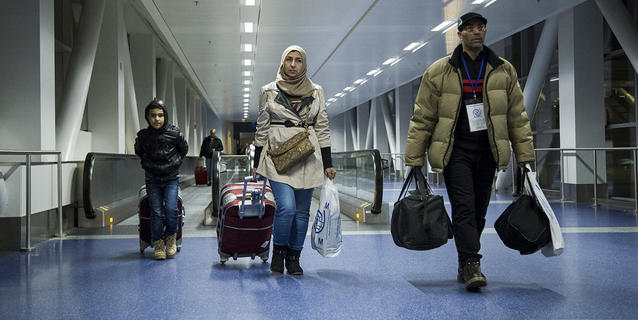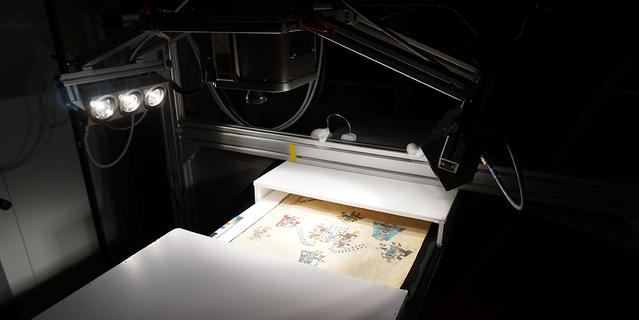|
 |
|
|
|
|
Your Virtual Body is now Ready
|
|
02.05.2019 |
|
Neuroscience
It is now (almost) possible to be embodied in realistic fashion within a virtual body. Although this reality could pave the way for new therapies, it also raises certain questions. The computer scientists Bruno Arnaldi, Pascal Guitton and Guillaume Moreau provide an overview of virtual embodiment technology.
|
|
Read the opinion
|
|
|
|
|
 |
|
|
|
|
Challenging Preconceived Ideas about Migration
|
|
02.13.2019 |
|
Demographics
Demographer François Héran, holder of the Migrations and Societies Chair at the Collège de France, challenges our preconceived ideas on migration and tells CNRS News why, together with more than 800 other researchers, he is calling for the creation of an equivalent to the International Panel on Climate Change (IPCC) for migration.
|
|
Read the article
|
|
|
|
|
|
|
|
Also this month
|
 |
|
|
|
The Science of Walking
|
|
02.11.2019 |
|
Biology Nothing seems easier than putting one foot in front of the other. Yet scientists working in the neurosciences and biomechanics are making ever more surprising discoveries, such as the fact that it is (almost) possible to walk without using our brains. |
|
Read the article
|
|
|
|
 |
|
|
|
Neutrino Hunters
|
|
02.14.2019 |
|
Physics Giant experiments all over the world are trying to break the secret of neutrinos, the elusive and unusual elementary particles discovered in 1956. Their success could change our understanding of matter and the Universe.
|
|
Read the article
|
|
|
|
 |
|
|
|
From Phantom Limb to Prosthetic Arm
|
|
01.28.2019
|
|
Robotics For amputees, controlling a robotic prosthesis is far from a perfect solution. It can take months of training before they can perform basic day-to-day operations. In France, a team of researchers, engineers and medical doctors are developing a more natural method for controlling such a... |
|
Watch the video
|
|
|
|
 |
|
|
|
There’s Science in Comics
|
|
01.22.2019 |
|
Science Communication ERCcOMICS, a European communications project initiated to promote science to the general public, was featured at the 46th Angoulême International Comics Festival. Many comics were printed for the occasion, including Estrella, a space-time exploration of the matter that makes up our cosmos. We met... |
|
Read the article
|
|
|
|
 |
|
|
|
A Leap Forward for the Heritage Sciences
|
|
02.21.2019 |
|
Heritage This February, the world’s leading experts in ancient materials research convened in Paris for the World Meeting on Heritage, Sciences and Technologies. For Loïc Bertrand, director of the IPANEMA laboratory and co-organiser of the event, the meeting is yet another sign of the renewal of the... |
|
Read the article
|
|
|
|
|
|
 |
|
|
|
The Pianist and the Scientists
|
|
02.15.2019
|
|
Acoustics Most professional pianists believe that their unique way of playing—posture, fine hand movements—defines a specific piano sound. A team of researchers and professional piano players are testing this hypothesis using special microphones and an array of motion capture sensors. |
|
Watch the video
|
|
|
|
 |
|
|
|
Of Bees and Men
|
|
01.24.2019 |
|
Archaeology Whether wild or domesticated, beehives have been used by humans for thousands of years. Representations and archaeological traces since prehistory and technical treatises for historical periods have offered a glimpse into this long coexistence, as the first interdisciplinary conference devoted to... |
|
Read the article
|
|
|
|
|
|
|